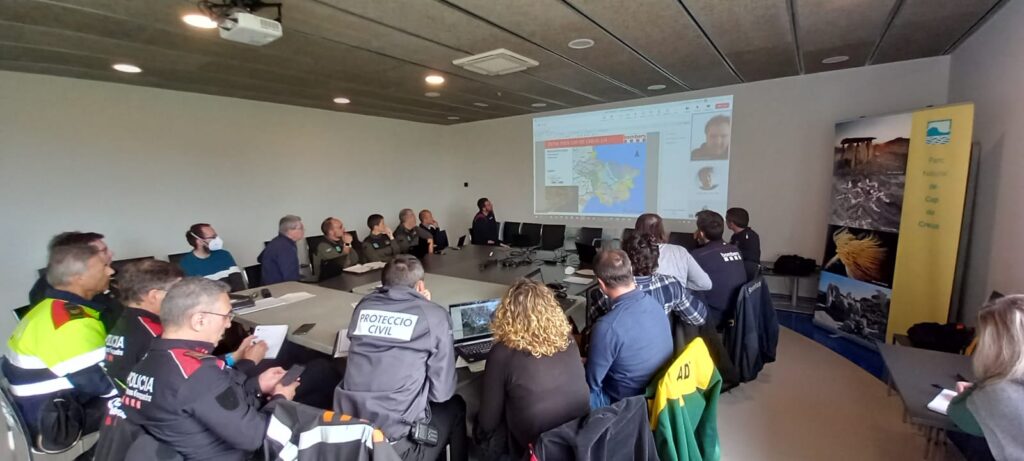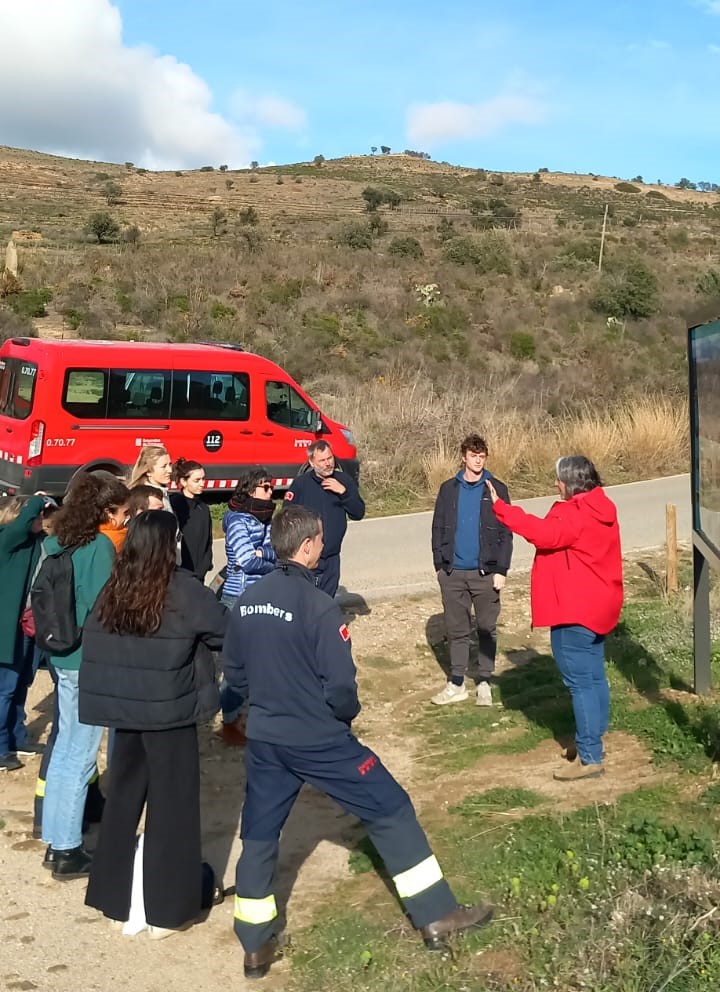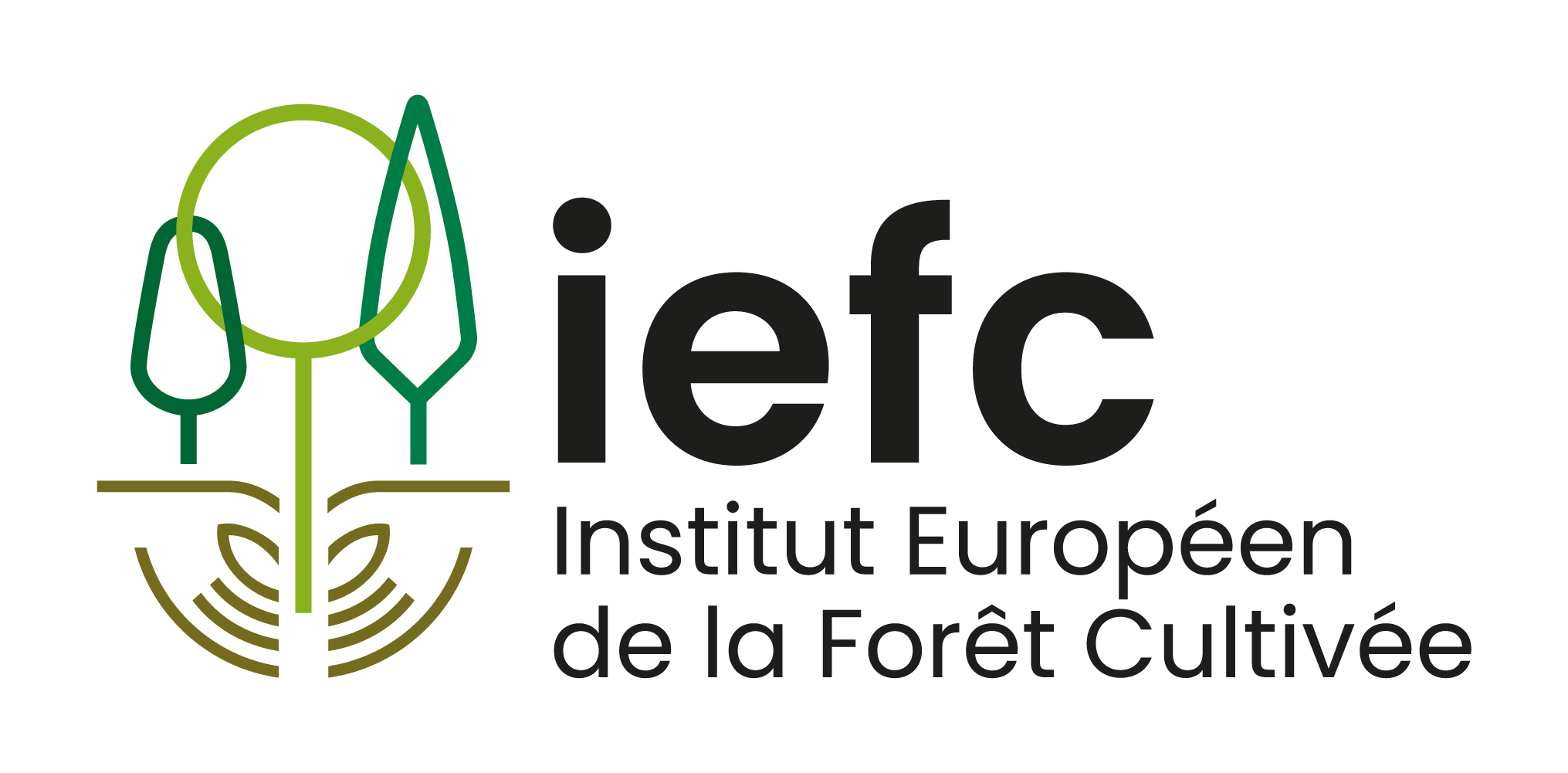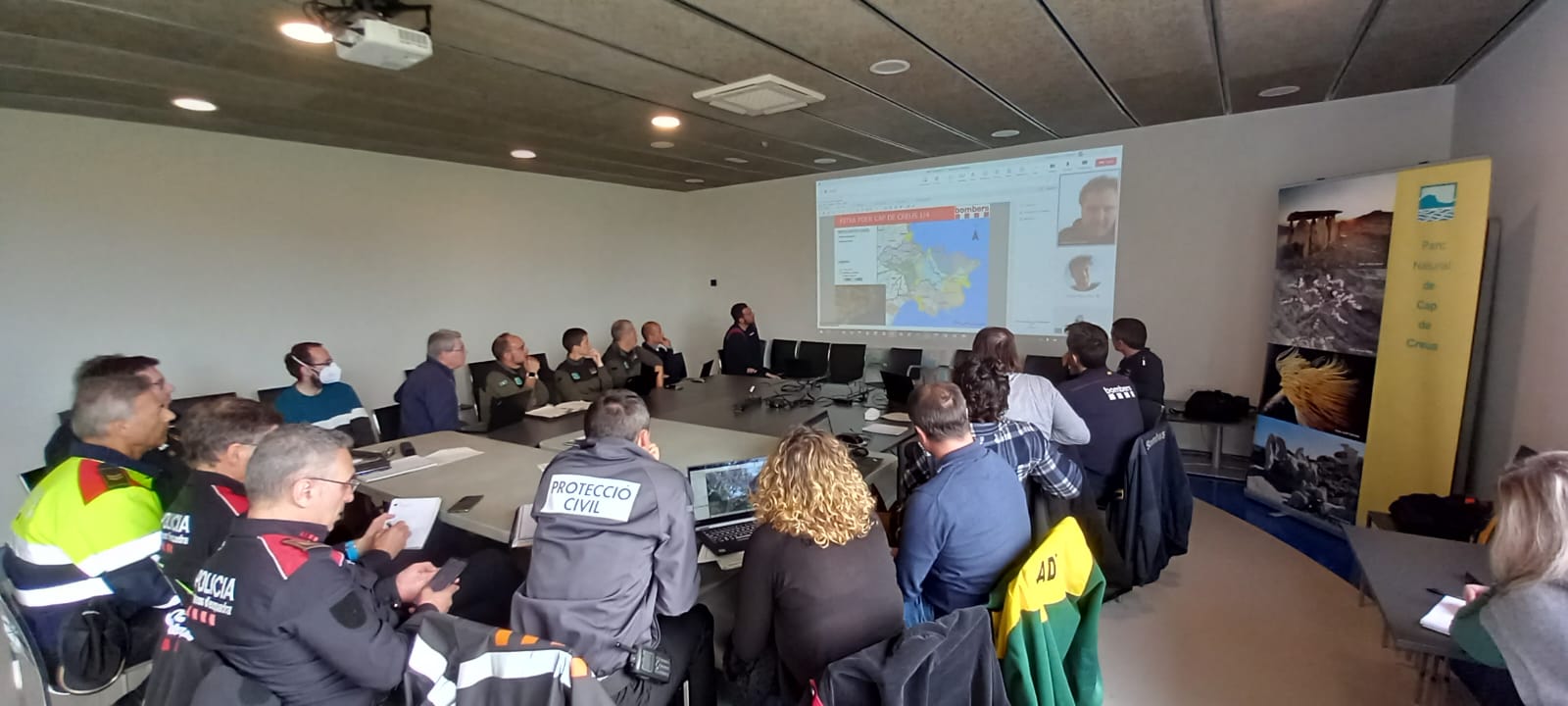The “FIRE FORUM” workshop held in Girona on 6 and 7 March, organised by the Catalan Fire and Rescue Service (CFRS), was a valuable meeting for IEFC. The event, part of the European FIRE-RES project, was aimed at exploring participatory approaches to strengthening fire risk governance.
The main objective was to present and discuss the fire-forum concept and the contribution of collaborative methods to decision-making and the construction of more resilient societies in the face of the risk from fires. Fire-forums, already used in various parts of the world under different names, are multi-actor discussion platforms designed to involve all stakeholders in the development of territorial strategies.
Several partners in the FIRE-RES project were present, including the Forest Science and Technology Centre of Catalonia (CTFC) in Spain, the Instituto Superior de Agronomia (ISA) in Portugal, and the Corporacion Chilena de la Madera A.G. (CORMA) in Chile. The Cap de Creus Natural Park and the Pioneers of Our Time Foundation also took part.
The first day was devoted to exchange and debate between the participants, with a section devoted to the definition of fire-forums and a presentation of the specificities of the local context in terms of fire risk management. This part was presented by Laia Estivill, Edgar Nebot and Martí Rosell (CFRS) and Ponç Feliu, Director of the Cap de Creus Natural Park. Catalonia is characterised by a high risk of fire due to its severe drought and large wooded areas, requiring proactive management. This problem becomes particularly apparent during periods of high risk, when the lack of practical and legal resources creates new difficulties: understaffing, the influx of tourists during the high season, and foreign tourists’ lack of awareness of the fire risk limit the ability of the emergency services to keep the crowds away from forest areas. Fire-forums can help to meet these challenges by fostering a shared vision and strengthening the commitment of the local community.
Speeches by experts underlined the importance of certain prerequisites for such participatory approaches to be effective, such as the level of trust in public institutions and the perception of responsibility for risk management.
The second day was given over to field visits, providing a concrete dimension to the previous day’s discussions. The visit to Vilajuïga provided an opportunity to attend a fire-forum session in Catalonia led by Edgar Nebot (CFRS). This session was part of the collaborative approach, and its objectives were to jointly define strategic approach and to identify the organisations and stakeholders who need to be mobilised. In the region, the complexity of the interplay between the various stakeholders makes the decision-making process cumbersome (time taken to process legal procedures and appeals, confusion caused by the large number of people involved).

A visit to the Roses region highlighted the role of farmers in territorial resilience, showing the positive impact of vineyards and their management in limiting the potential spread of fires.

As collaborative approaches are at the heart of IEFC’s work within the FIRE-RES project, this workshop was an excellent opportunity to learn from experts and draw inspiration from their work to build our participatory workshops with municipalities. The event was also an opportunity to communicate and disseminate our results, to observe the many synergies between the work of the partner organisations, and to strengthen our partnerships.
The IEFC would like to thank its partners involved in the FIRE-RES project and in particular the CFRS for the quality of the organisation of this event.The IEFC would like to thank its partners involved in the FIRE-RES project and in particular the CFRS for the quality of the organisation of this event.The IEFC would like to thank its partners involved in the FIRE-RES project and in particular the CFRS for the quality of the organisation of this event.
Lucas Moreews & Daphné Villain, IEFC

